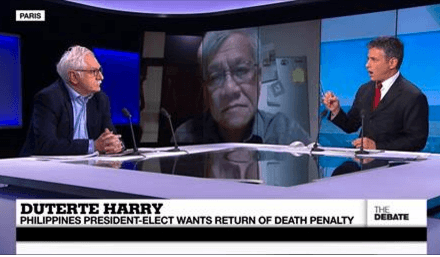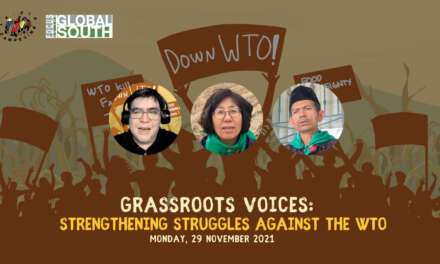10 July 2025
A Wake-Up Call Against Trump’s Weaponization of Trade
Donald Trump’s decision to impose a 20% tariff on Philippine goods is a blatant weaponization of trade policy—an act of economic strong-arming that punishes countries like ours for incurring trade surplus with the USA. This kind of unilateralism makes it clear: no amount of compliance or loyalty guarantees fair treatment from major powers when economic coercion becomes their tool of choice. Pres. Trump’s letter to Pres. Marcos Jr is proof of this tactic: Trump sounded like a mafia boss shaking down a lowly shop owner for additional rent when he noticed that business is earning. If this is how a self-declared brilliant deal-maker does his negotiating, then he is no more than a bully taking a school lunch from his classmate.
Trump conveniently forgets that for decades, the US empire has been bleeding our economy dry—through unfair trade terms, structural adjustment programs, exploitative investments, and political interference. A few years of trade surplus with the US is not even a dent compared to what is owed to us in reparations. We have paid, and continue to pay, the price for the wealth and dominance of the Global North.
This should be a wake-up call—not just for the Philippine government but for the entire ASEAN region.
For decades, we have been told that growth will come by integrating into global value chains, producing cheap goods for export, and keeping wages low to attract foreign capital. But what have we gotten in return? Vulnerability. Instability. A race to the bottom. Today’s tariff hike is not just a trade issue; it exposes the deep flaws of an export-dependent development strategy that leaves our economy at the mercy of global markets and the political whims of foreign leaders.
It’s time to rethink.
- We must deepen regional solidarity within ASEAN—not just as a geopolitical bloc but as a more cohesive economic community capable of asserting our collective interest.
- We must broaden and rebalance our trade relationships, especially with nations that respect sovereign development paths and do not use trade as a political cudgel.
- Most of all, we must shift course towards an economic strategy centered on meeting the needs of our own people—reviving our manufacturing, supporting domestic industries, and ensuring food, energy, and wage security from within.
- We need a development path that prioritizes resilience over dependency, and sovereignty over subservience.
This is not just about tariffs. It’s about reclaiming control over our future. ###
Contact: Joseph Purugganan (+63 917 546 0319)







![[IN PHOTOS] In Defense of Human Rights and Dignity Movement (iDEFEND) Mobilization on the fourth State of the Nation Address (SONA) of Ferdinand Marcos, Jr.](https://focusweb.org/wp-content/uploads/2025/07/1-150x150.jpg)

